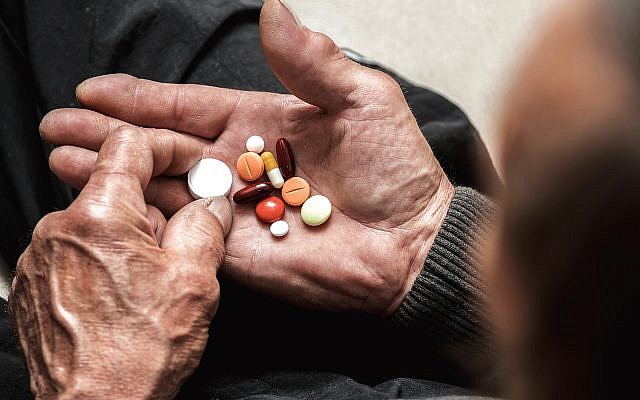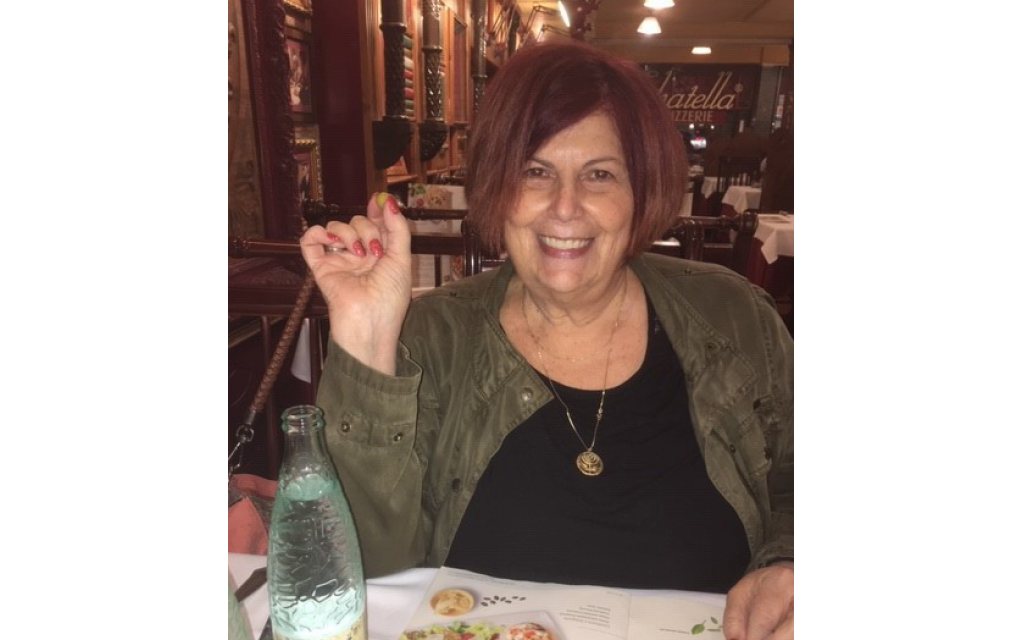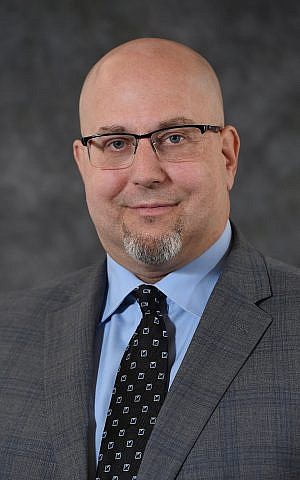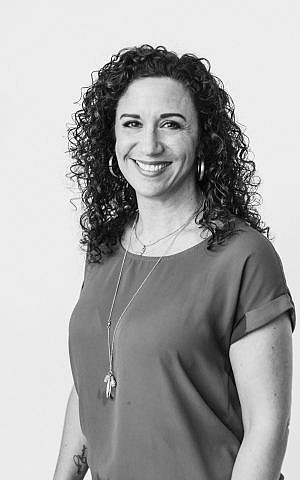Senior Addiction Close to Home
One Jewish Atlantan shared her story with the AJT in the hope of spreading awareness about senior addiction closer to home.

Over the past few years, much of the biggest news in the United States has been focused on the toll of the “Opioid Crisis,” but often such large headlines can feel distant, and far from daily life. Recently, one Jewish Atlantan shared her story with the AJT, in the hope of spreading awareness about senior addiction closer to home.
In the most recent data released last year from the Centers for Disease Control and Prevention, Americans over 55 experienced the second highest jump in opioid overdoses in emergency rooms over a 15-year period.
The 55 and older population saw a 32 percent increase compared to 36 percent for those 35 to 54, 31 percent for those 25 to 34 and 7 percent for those 15 to 24.
Carol Waldman, 66, moved to Atlanta from Florida in 1990, and now over three years sober, discussed her struggles with addiction and her road to recovery.
“From about 19 years old, I was always experimenting and things like that,” she said. “As I got older, I didn’t do much. Marijuana was a constant, but that was really about it.”
When knee problems and insomnia began to plague her, marijuana wasn’t her only substance of choice.
“About eight or nine years ago, I started seeing a psychiatrist and he began prescribing me Seroquel and Xanax. … My first knee surgery was in 2010,” Waldman said. “When you have surgery, the doctors give you hydrocodone right away. It was like going to a candy store.”
By August of 2015, she was prescribed 4 mg of Xanax and 350 mg of Seroquel, along with other pain managers. “That’s enough to put out an elephant,” she said. “By this point I was having blackouts because if something hurt me an Advil wasn’t going to do it; a Tylenol wasn’t going to do it. A hydrocodone was going to do it.”
Her behavior was troubling to some in her family and forced her to try covering it up.

“My youngest daughter was very acutely aware of everything that was happening,” Waldman said. “I’d ask her something and she’d say, ‘Mom, you asked me that yesterday. You don’t remember?’”
Aug. 30, 2015, is when her family first started to notice a serious problem. Waldman fell getting out of bed, dislocating her right knee.
“It’s pretty hard to dislocate a replacement knee; it takes special skill,” she joked.
Paramedics were called and she was taken to the hospital, where the knee was relocated, and she moved to her downstairs bedroom to avoid the hassle of climbing the stairs.
“The next day I did the same exact thing, but this time I was foaming at the mouth. They took me to the hospital, and I was in the hospital for five days,” she said. “To this day, I have no memory of it. None whatsoever.”
Her family realized that there was a serious problem, and, while Waldman was away rehabilitating from her knee injuries, they planned the next step.
“I came home on a Thursday and I was very excited. I came home and the whole family was there, and the doorbell rang and it was our new rabbi, and I was so excited. The rabbi came to see us! I still had no idea what was going on,” she said.
The difficult conversation began, with family members sharing their concerns with her, and handing her a pamphlet for Caron.
“I didn’t understand. I guess I just didn’t understand what was happening,” Waldman said. “I knew that I’d hit rock bottom, but I didn’t know to what degree.”
Waldman’s daughter and husband flew with her to Caron’s treatment facility in Wernersville, Penn. Caron also has an outpatient facility in Dunwoody, but the Pennsylvania location has a senior-specific program.
“They flew me up and took me in, and then they left me there,” she said. Her journey to recovery began on Oct. 19, first with detox.
“I remember it vaguely,” she recounted. “They took away all my pills and kept me there for one night. Then I was transferred to a room in the senior unit. For the first three or four days all I did was kvetch. It hurt, I didn’t want to be there, and all I was doing was throwing up.”
After a few weeks of the recovery process, the weekend of Nov. 12 was a family weekend, and a chance for Waldman to see her loved ones. She was visited by her husband, daughters and her son-in-law, and shared a lunch with them.
“I was so excited, and I said, ‘I’m doing so well, I’m never going to take a pill again.’ When you say that, it’s a big red flag. Later that afternoon, my counselor called me into their office and my husband was there.”
Originally, she was scheduled to return home the week of Thanksgiving, but her counselor gave her some difficult news.
“She said to me, ‘We’ve been sitting here talking and you’re not going home then,’” Waldman said. “I went ballistic. I went crazy, screaming and crying, and she said to me, ‘This is the most emotion I’ve seen out of you since you’ve been here.’ I had to stop playing the game.”
Waldman explained that she had been so focused on going along with the process and being a model citizen, she hadn’t really processed what she was going through.
“I was saying ‘yes, yes, yes,’ but I wasn’t really digging down into myself,” she said.
Waldman was very complimentary of her experience at Caron, and even keeps in touch with two fellow patients from her therapy group there.
“We had a unique group. We were all very open, and we could joke and be serious, we could laugh and could cry. It was so intimate,” she said. “I’ve been lucky to keep in touch with two friends for life.”
Since returning from Caron, Waldman’s life has changed dramatically, and while the professionals advise not making any drastic changes, she returned home to a surprise.
“My husband kind of didn’t listen and he’d sold our house,” she said, chuckling. “It was under contract when I came home on Dec. 27. We closed on it Jan. 30 and moved into a condo.”
Now her life consists mostly of her family, with her three grandchildren. She and her husband have begun to travel more, and she is approaching four years of sobriety in October.
When asked what she would tell herself if she could go back in time, Waldman had a simple question in mind. “Why did it take you so long?”

Dr. Joseph Garbely, medical director of Caron addiction treatment center, discussed senior addition, treatment and recovery with the AJT as he prepared to speak at the RX Drug Abuse & Heroin Summit this week.
“There’s a lack of quality programs out there that can address the unique needs of seniors and, as a result, there’s an insufficient number of quality beds for this population that can meet their needs,” he said.
Garbely explained that the first step to treating older adults is getting them physically active and rehabilitated.
“Oftentimes they need physical therapy to get reconditioned because, in their active addiction, they are inactive,” he said. “We make sure that once they are safe on their feet and cleared through physical therapy, we start getting them an exercise regimen in the gym to get them active and moving again.”
In terms of the mental, emotional and psychological issues, Garbely explained that grief and loss tend to be at the center of the discussion around senior addiction.
“It’s loss of independence, loss of loved ones and loss of friends. If they’re in advanced years, oftentimes there’s been a lot of loss they’ve had to go through. It can be loss of purpose and function,” he said.
While it may seem counterintuitive, Garbely also said that seniors are more open to change and rehabilitation than most other adult patients.
“I would say they embrace it the easiest and quickest, because by the time we get them, it is undeniable that their quality of life has eroded so much that they’re willing to do whatever they need to do to get some quality of life back. They are a joy to work with,” he said.
Garbely also described some of the common misconceptions surrounding addiction and the recovery process.
“Misconceptions are that it is a lack of willpower, a moral failing or that people have control of this disease, which they do not,” he said. “It’s a disease where one of the hallmark symptoms is a loss of control.”

Leslie Lubell is information and referral specialist with Jewish Family &Career Services’ HAMSA (Helping Atlantans Manage Substance Abuse) program. She suggested speaking with a professional well-versed in addiction as a first step if concerned about a loved one.
“We’re able to help people decide how to use the resources that are available out in the treatment world, because treating a senior in the world of substance abuse is different than treating [another] adult,” she said. “It presents a lot of specific issues.”
She also shared a few warning signs to watch for:
They stop wanting to engage in the things they used to love.
They stop seeing their friends and spend more time at home.
They start spending money irresponsibly or differently from how they have in the past.
They hop from doctor to doctor or see many different doctors in a short period of time.
Waldman emphasized that addiction is not isolated to any one group.
“When someone talks to me or looks at me, they would never, ever think that I’m an addict. I’m a 66-year-old Jewish woman,” she said. “When people think of addicts, they think of slimy people on the street. They don’t realize that it could be anybody.”
When asked why she wanted to share her story, Waldman’s answer was very simple:
“This is local,” she said, “I’m glad [to be sharing this]. If one person looks at this and says, ‘I have this problem and I should do something about it.’ There’s so much going on here now, and I think it’s important that people see it.”



comments